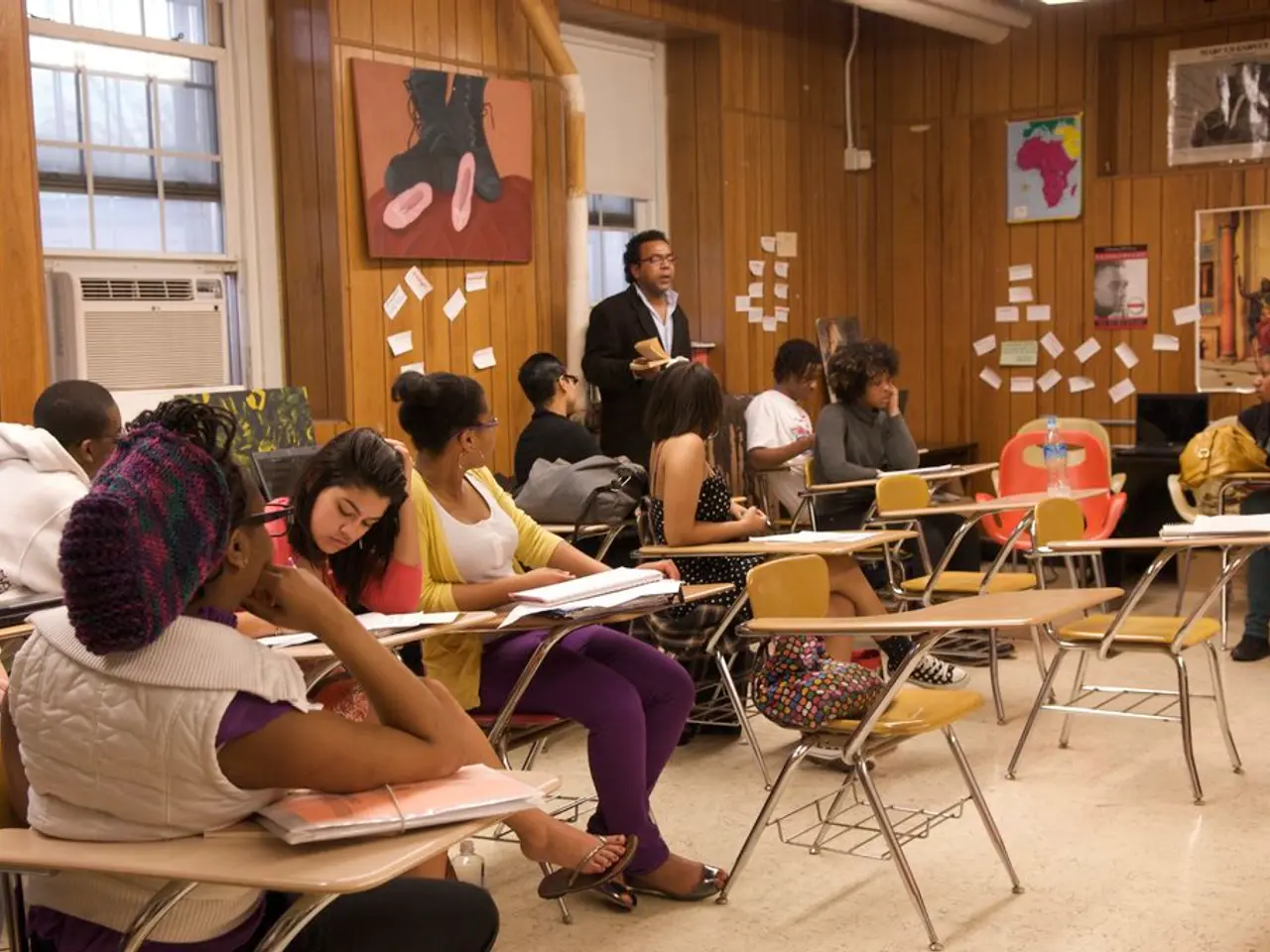Artificial Intelligence Mentoring: Study Mode and Break Alerts in ChatGPT Signal Shift Towards Digital Guide?
In the ever-evolving world of education, artificial intelligence (AI) is making a significant impact, stepping into roles previously reserved for teachers, parents, or personal mentors. AI tools like ChatGPT are offering coaching and guidance, serving as a study companion for many learners.
Using AI as a study companion offers several notable pros and cons related to personalization, consistency, accountability, over-reliance, lack of emotional context, and data concerns.
Pros
One of the key advantages is personalization. AI study companions can adapt to an individual learner’s pace, strengths, and weaknesses, providing tailored content and feedback that optimizes learning efficiency.
Another advantage is consistency. Unlike human tutors who may vary in availability and quality, AI provides constant, consistent support accessible anytime for quick answers and regular study assistance.
Cons
However, there are potential drawbacks to consider. Over-reliance on AI could lead to diminished problem-solving skills and critical thinking if AI is used as a crutch rather than a tool. Moreover, AI can provide inaccurate or hallucinated information, which may mislead learners.
AI lacks genuine emotional understanding and empathy, limiting its ability to motivate or comfort learners effectively. Human study partners offer emotional support, detect stress, and adjust teaching strategies accordingly.
Data Concerns are another issue. AI study companions collect sensitive academic and personal data, raising privacy risks. Breaches can damage user trust. Ensuring compliance with regulations like FERPA and GDPR requires robust encryption and regular audits.
Potential Bias in AI models, stemming from non-representative datasets, could lead to unfair or inaccurate learning suggestions and assessments.
Lastly, reduced social skill development might occur due to reliance on AI, potentially impairing social skills, especially for younger users who may develop unrealistic expectations about relationships.
AI can fill gaps in education, particularly in regions with limited teacher availability or for learners needing constant feedback. However, over-reliance on AI for managing study schedules might lead to a loss of self-discipline for students.
AI learning plans are customized to individual goals, and features like Study Mode in ChatGPT are designed to adapt to individual learning styles by breaking down complex topics, providing quizzes, and adjusting difficulty based on progress. Break Reminders in AI tools are intended to provide a human touch by encouraging regular breaks during study sessions.
The use of AI in mentorship is a potential future, but it is a topic of debate with concerns about outsourcing too much of learning discipline to machines. Unlike human mentors, AI can instantly adapt to different subjects and formats, and can track performance and suggest improvement areas without judgment. AI can be available 24/7, offering consistency in learning schedules and never forgetting or losing patience. AI can quickly pivot to explain various subjects and formats.
The best results may come from a hybrid approach, combining AI for structure and resources, and human mentors for emotional guidance and nuanced understanding. Artificial intelligence, such as ChatGPT, is being used as a study companion with features like Study Mode and Break Reminders. The shift towards AI mentorship in learning is a topic of debate, with some viewing it as a natural evolution and others expressing concerns about outsourcing too much of learning discipline to machines.
Read also:
- Application solicitations for PhD in Law at DAU School of Law for the academic year 2025-26 are now open
- Must-see eco-friendly exhibitions to check out this summer in London for nature enthusiasts
- AI's environmental footprint unveiled by Mistral's latest sustainability tool, painting a grim picture
- Identity Verification Processes in Neobanks Across Asia-Pacific






